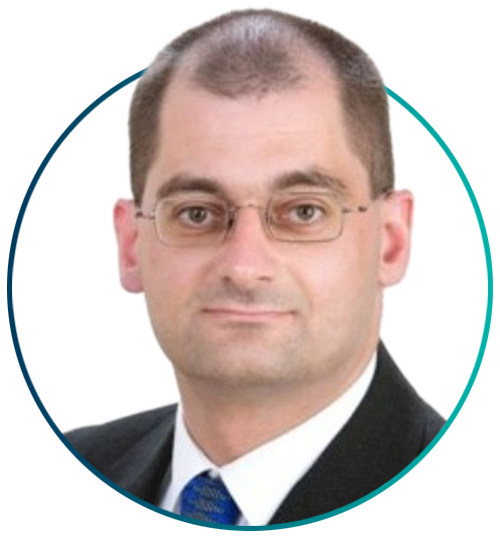Amid economic and geopolitical uncertainty, fundraising in Europe demands thoughtful and complex strategies along with complicated capital structures to succeed. Diversified strategies and innovation can help mitigate risks and navigate the intricacies of the Alternative Investment Fund Manager (AIFM) marketing passport and new reporting requirements.
For alternative fund managers, the fundraising environment has been challenging for the past few years and looks set to remain difficult in 2025. Alongside the macroeconomic and wider challenges such as higher interest rates, market volatility, and banking upsets, are new regulatory hurdles in Europe with the advent of Alternative Investment Fund Managers Directive (AIFMD) 2.0 and stringent reporting requirements.
CSC’s recent webinar Fundraising in Europe and What Alternative Asset Managers Need to Know outlines approaches that can help alternative managers entering Europe to succeed in their fundraising pursuits.
Feedback from fund managers in alternative asset classes indicates that the current European regulatory environment is in fact the biggest challenge they face in executing successful fundraising in Europe. Many find reporting requirements especially hard to manage. Their key concerns include:
- Regulation and reporting challenges
- Pressure for higher returns and distributions
- Access to the AIFMD fund passporting regime
How can managers navigate the AIFMD landscape?
AIFMD is intended as a regulation for investor protection, and regulatory pressure in this area is ever-increasing. As new asset classes and new geographies come onstream, it results in managers looking with greater interest at outsourcing or co-outsourcing, which bring their own issues of control. However, it’s also a proven and tested regime, and compliance should not be a handicap for those funds ready to ascend the learning curve.
Fund managers new to these structures need to look at issues including:
- Aligning economic flows with the legal documentation
- Structuring to ensure a sustainable governance and tax-compliant formation
- Making sure that there are enough operational resources on the ground for the various entities engaged
What are the impacts of loan, liquidity, and delegation constraints?
New AIFMD 2.0 regulations which may impact the operations of Alternative Investment Fund Managers (AIFMs) include loan origination for the AIFM, as well as the use of liquidity management tools as depositories. Specifics of delegation to, or by, the AIFM are also material to compliance priorities. These are new developments and unlikely to be the last.
On the positive side, an effective fundraising exercise, whether helmed solely by the fund manager or with supporting partners, can take full advantage of pre-marketing options, which will allow them to test the waters with prospective limited partners (LPs) before moving to the full effort and expense of a fundraising roadshow. A little effort to accommodate the regulator can save a great deal of money and effort later.
How should managers approach risk and macro uncertainty?
Alongside portfolio management, any Europe-based AIFM must manage risk as a key function. This is an especially important concern given the current levels of macro uncertainty. AIFMs need to have appropriate risk management strategies in place.
Risk management for such AIFMs is at two levels: for the AIFM itself, and for its funds. The teams in place must understand the risk profile of the funds themselves – across market risk, credit risk, business risk, counterparty risk, operational risk, as well as the paramount liquidity risk. All of these must be managed and monitored to be ready for supervisory authority reviews.
What are the extra EU criteria for ESG?
There are also considerations such as sustainability, ESG, and SFDR requirements, which may be unfamiliar to fund managers new to European jurisdictions.
A fund’s prospective investors may be looking for evidence that the general partner intends to facilitate the green transition and is integrating ESG considerations into their fundraising offer. Here, once again, the fund manager may need advice from outside partners who truly understand the regulations and considerations at play in Europe.
Should fund managers build or partner for AIFM services?
Fund managers can create their own AIFM, but this is costly, time-consuming, and carries regulatory capital requirements. It also needs to be done even before pre-marketing, which cuts out the cost and speed advantages of this process. Unsurprisingly, most fund managers will elect to appoint a third-party AIFM for pre-marketing services. The third-party AIFM can provide flexibility, specialized teams with the necessary skills, and knowledge of the different notifications that must be made to national competent authorities.
How outsourcing with CSC addresses fundraising needs
Outsourcing core AIFM functions to an expert and highly qualified third-party fund management company with AIFM services, is emerging as a solution to many pressing difficulties for fund managers seeking to access Europe. Compliance requirements are managed by on-the-ground teams with detailed domain knowledge of legal and regulatory issues, and the fund manager is spared the cost and time of setting up their own AIFM.
At CSC, we recognize the complexities of the evolving AIFMD landscape. Our comprehensive suite of solutions is designed to support fund managers at every stage of their AIFMD journey, from implementation and throughout future local regulatory changes. From fund administration and depositary services to expert regulatory compliance support, CSC offers the tools and expertise to navigate transformation successfully.
For more information on how CSC can help, visit our fund solutions page to learn more.
